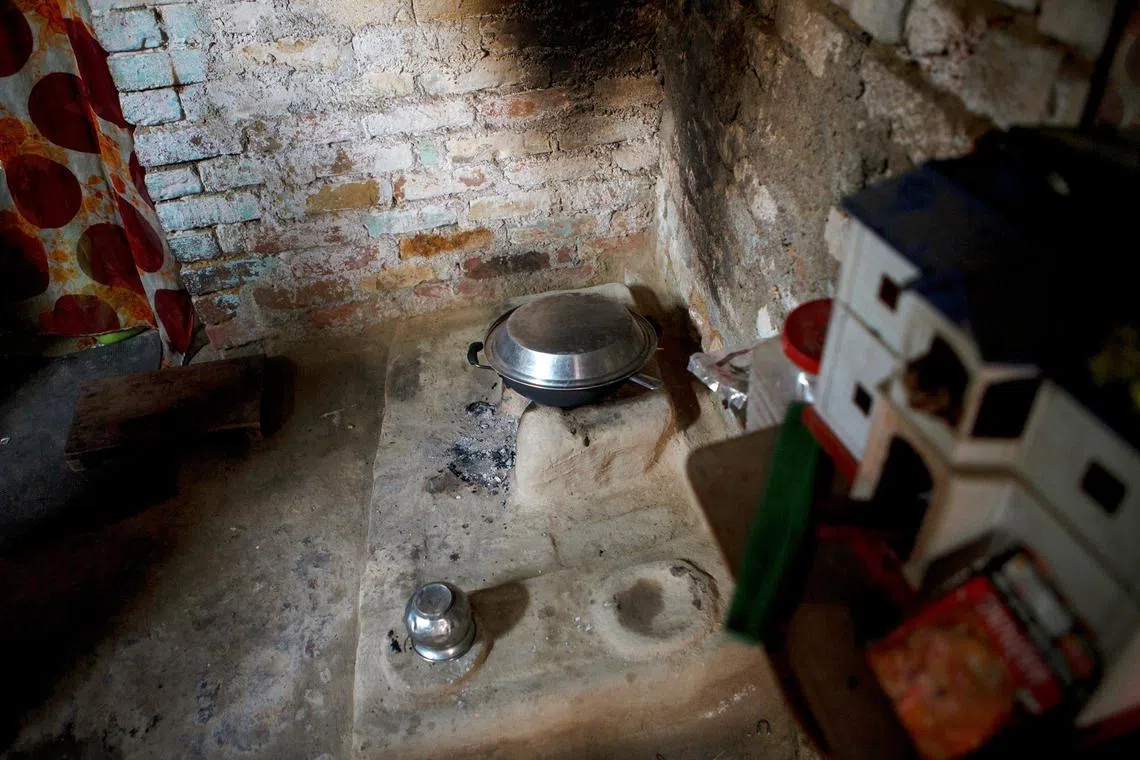Singapore fund seeks $168m to provide millions of stoves to poor families in India and Africa
Sign up now: Get ST's newsletters delivered to your inbox

Many of India's poorest still depend on three-stone stoves that use coal, cow dung and firewood as fuel.
PHOTO: PRABHAS ROY
Follow topic:
A Singapore-based money manager plans to raise as much as US$125 million (S$168 million) to supply energy-efficient stoves to families in India and Africa, and will generate returns for investors by selling carbon credits.
The Improved Cook Stoves Carbon Fund will be managed by Singapore’s Impact Capital Asset Management (Icam), which has partnered with EKI Energy Services.
The Indore, India-based EKI will invest US$25 million in the fund and make the stoves, according to Icam chief investment officer Deepak Mawandia.
“There is a huge opportunity for a meaningful impact in India because, if you look at the numbers, it’s mind-boggling,” he said in an interview.
“In Africa, the impact on society is much larger because in some of the areas that we are going and some of the things that we are doing, you see a lot more difference.”
The fund is betting that the demand for carbon credits, which McKinsey & Co forecast may reach US$50 billion by 2030,
The proceeds will help the fund to supply three million cookers in India, as well as Kenya and Ghana within about two years, Mr Mawandia added.
The stoves will still burn wood that is currently being used by families – thereby increasing uptake – but will provide better combustion, allowing households to use 50 per cent less fuel and reduce toxic smoke by as much as 40 per cent, according to Icam.
Each stove will help reduce greenhouse gas emissions by as much as five tonnes a year, and the project will generate as much as three million carbon credits annually over five years for each US$25 million disbursement, the fund said.
“In the case of cook stoves, most clean alternatives are more expensive than traditional cook stoves,” said Mr Kyle Harrison, an analyst with Bloomberg New Energy Finance.
“But offsets can bridge the gap in costs to allow rapid deployment. We forecast carbon offset supply from clean cook stoves could reach 542 million tonnes of carbon dioxide equivalent in 2050.”
Most vulnerable
Icam will deploy the stoves in phases. During each tranche, as many as 750,000 will be distributed free to people in rural areas, specifically targeting those who use traditional methods of cooking, typically three-stone stoves which use coal, cow dung and firewood as fuel.
“It’s an energy-efficient project with a huge climate impact, and indirectly it has an impact on education, economic welfare, health and hygiene,” Mr Mawandia noted. “We believe that a well-constructed, clean-cooking programme is perhaps one of the most impactful projects in the climate change space.”
The first beneficiaries will be in India, the world’s third-largest emitter of greenhouse gases by volume in 2022.
They will be followed by others in Kenya and Ghana in Africa, the continent that is most vulnerable to climate change, despite having contributed the least to global warming and having the lowest emissions.
While EKI is the first partner, the fund is also seeking to entice family offices in Singapore, hedge funds and European impact investors, Mr Mawandia said. BLOOMBERG

